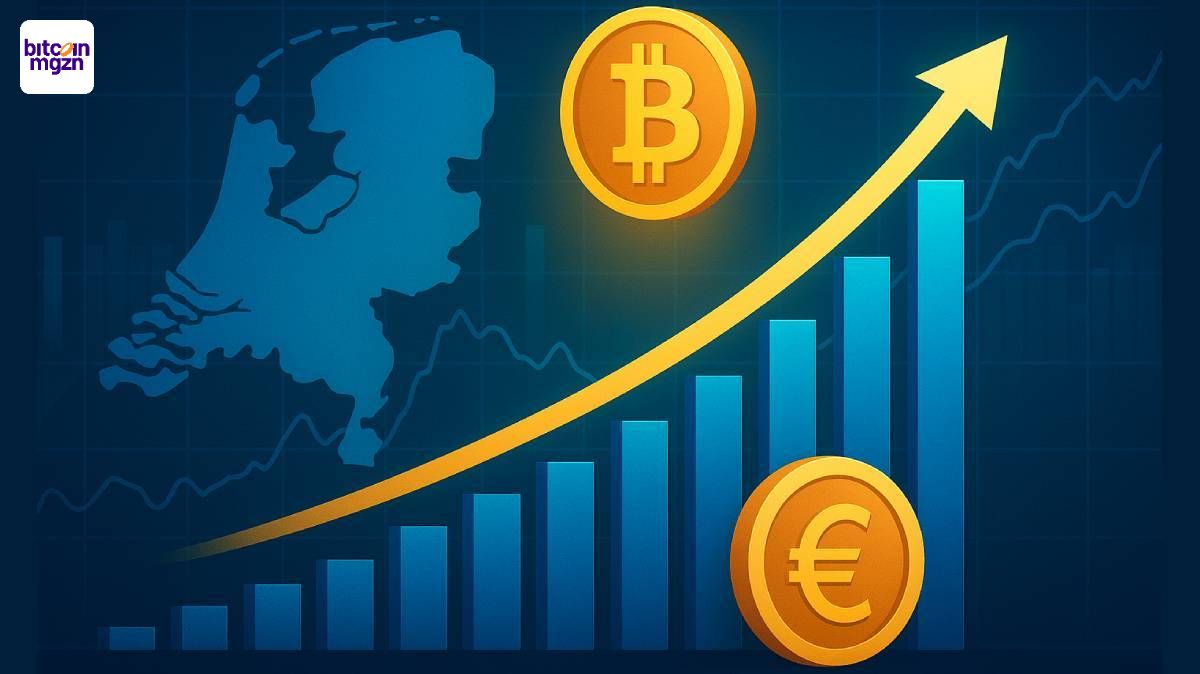In recent years, cryptocurrencies have surged in popularity across the Netherlands, signaling a shift in investment practices among Dutch citizens. This change has profound implications for the nation’s financial landscape, as traditional investments like stocks and exchange-traded funds (ETFs) find themselves being overshadowed by this digital currency revolution.
The Rise of Digital Currency
According to a study by crypto platform Kraken, 37% of Dutch individuals aged 18 to 65 now own cryptocurrency, surpassing the 32% who hold stocks and the 16% with ETFs. Initially perceived as a speculative gamble, crypto is gaining recognition as a legitimate investment, with 84% of owners having engaged in transactions within the last six months. Notably, one in five crypto investors conducts trades on a weekly basis.
Why the Shift?
The rising inflation and fluctuating economic conditions have transformed how people view traditional currencies. A significant 76% of respondents indicated they are exploring alternative investments, with nearly 30% declaring they have invested additional funds in crypto to counteract the decline in purchasing power. Mats Zwerink, Country Manager for Kraken in the Netherlands, points out that the focus is shifting toward creating user-friendly and reliable platforms, enhancing overall trust and engagement in the crypto ecosystem.
Community Conversations
Cryptocurrency discussions are no longer confined to digital channels; they have permeated social gatherings, becoming common topics during family dinners or among friends. Social media platforms, especially YouTube and WhatsApp, serve as popular avenues for sharing knowledge about digital assets. Surprisingly, 87% of survey respondents expressed some level of trust in cryptocurrencies, although educational gaps remain, with 29% admitting they still find it complex.
Regulatory Landscape and the Need for Education
The evolving regulations within Europe, especially the upcoming MiCA legislation, are aimed at illuminating the path forward for crypto adoption. While 62% of Dutch individuals believe that such regulations could enhance their confidence in the market, a significant portion remains uninformed about the specifics. There exists a critical need for educational resources to simplify these regulations and empower individuals, helping them navigate this complex terrain effectively.
A Long-Term Investment Mindset
The recent findings illustrate a shift in how Dutch citizens plan to utilize cryptocurrency. Approximately 60% view digital assets as a safeguard against inflation, while 73% are considering integrating crypto into retirement plans or savings goals. Active trading interests align more with a youthful demographic, but a large faction of holders see cryptocurrencies as a long-term investment strategy rather than vehicles for quick profit.
The Role of Kraken
Established in 2011, Kraken is making notable strides in this transformative scenario. With over 15 million clients and more than 500 cryptocurrencies available for trade, its commitment to transparency is crucial. By being the first to conduct a Proof of Reserves audit, Kraken allows users to verify their deposits, fostering confidence in a sector often viewed skeptically.
Looking Ahead
The upward trajectory of cryptocurrency in the Netherlands paints a hopeful picture. Emerging as more than just a trend, it is increasingly incorporated into people’s financial planning and retirement strategies. Despite this growth, significant hurdles remain, such as improved regulatory clarity and educational resources, which are vital for further integration. Organizations and authorities focusing on these areas will likely drive the next phase of crypto adoption in the Netherlands, paving the way for a more knowledgeable and confident investor base.


